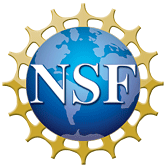Smart Cities -- Manuel Avalos

Smart Cities -- Burcu Akinci

Smart Cities -- Kaan Ozbay

Smart Cities -- Lauren Baldwin

Smart Cities -- Mario Berges

Smart Cities -- Rocio Maciel

Smart Cities -- Raul Beltran

Smart Cities -- Jeff X Ban

Smart Cities -- Joe Chow

Smart Cities -- Ondrej Pribyl

Smart Cities -- Tomas Horak

Smart Cities -- Miroslav Svitek

Smart Cities -- Victor Larios

Smart Cities -- Leopoldo Gomez

Description
A smart city is a place where people enjoy improvements in the Quality of Life through continuous innovation in public and private services that are enabled by open and transparent sharing of information between the residents, visitors, public and private sectors, supported by efficient, reliable, and secured communication infrastructures. Additionally, the ability to process, synthesize, and integrate information is essential, as is the respect for individual rights and privacy. The smart cities community was formed by a group of researchers in the College of Engineering in 2014.
Aspirations
KEYWORDS
- Data privacy
- Data science
- Interdisciplinary collaborations
- Internet of things
- Quality of life
- Resiliency
- Sensor network
- smart cities
- Sustainability
- System of Systems
COMMUNITY MEMBERS
Advocate
Advocate
Advocate
Member
Member
- 1 of 4
- ››
|
Akinci, Burcu (View) Carnegie Mellon University Edit |
|
Attel, Carol (View) El Paso Community College Edit |
|
Avalos, Manuel (View) IBM Mexico Edit |
|
Baldwin, Lauren (View) City of El Paso Edit |
|
Ban, Jeff X (View) University of Washington Edit |
|
Beltran, Raul (View) University of Guadalajara Edit |
|
Berges, Mario (View) Carnegie Mellon University Edit |
|
Chow, Joe (View) New York University Edit |
|
Gomez, Leopoldo (View) Universidad de Guadalajara Edit |
|
Guerra, Araceli (View) City of El Paso Edit |
|
Horak, Tomas (View) Czech Technical University Edit |
|
Larios, Victor (View) Universidad de Guadalajara Edit |
|
Maciel, Rocio (View) University of Guadalajara Edit |
|
Ozbay, Kaan (View) New York University Edit |
|
Pribyl, Ondrej (View) Czech Technical University Edit |
|
Svitek, Miroslav (View) Czech Technical University Edit |
|
Yanez, Mary (View) El Paso Community College Edit |
Related Efforts
In collaboration with the City of El Paso and El Paso Community College, the goal of SSC is to examine the intersection of technology, community engagement, and social science to develop and sustain senior connectedness through the following objectives: 1. Advance knowledge on the systemic and behavioral factors that increase connectedness and bridge the generational digital divide in seniors; 2. Increase social and technological connectedness for seniors through Smart City solutions.
The goal of the proposed IRES is to engage 3 cohorts of diverse, STEM graduate students that can contribute to Smart Cities research areas. The objectives are:
1) Create opportunities for students to deepen their knowledge in the proposed research areas and align it to Smart Cities initiatives, and
2) Foster the development of students’ intra- and inter-personal competencies to effectively participate in collaboration across disciplines, borders, and cultures.
The research priority of C2SMART is “Improving Mobility of People and Goods” with a focus on “Smart Cities.” C2SMART’s mission is to build a solution-oriented research center that uses cities among its consortium members as a decentralized but comprehensive living laboratory. The Center will study a number of challenging transportation problems and field test novel solutions in close collaboration with end-users, city agencies, policy makers, private companies, and entrepreneurs.
We aim at collecting smart phones’ sensors data from drivers in the city and analyze it to explore drivers’ interactions with road topology. Such data can be analyzed in combinations with traffic regulations, crash and traffic violations databases. The ultimate goal of this proposal is to improve drivers’ safety and inform the responsible agency to take actions on traffic control and management.
- 1 of 2
- ››
Related Centers
Related Communities
In this paper, the concept of Smart Parking Garage (SPG) is formally introduced.The concept of operations, including functional requirements, equipment, relationships with the U.S. National ITS architecture, and a typical use case of an SPG are described. To assess the benefit of an SPG compared to a conventional garage, a five-level garage was selected, and the search times to park in 22 selected spaces were measured by a test vehicle. The results showed that SPG reduced the median search time by 35 seconds.
This is the final report of a C2SMART funded research. The objectives of this project were: (1) To develop a level of service analysis procedure for off-street parking facilities; (2) To develop a concept of operations for a smart garage performance measurement system; (3) To develop a concept of operations for a smart on-street parking performance measurement system; and (4) To develop equations for on-street parking search time as functions of occupancy ratio.
This paper focuses on investigating senior citizens’ mobility needs in El Paso, Texas and New York City, New York in order to define the requirements and recommendations for an ad-hoc solution on smart mobility for seniors, using state-of-the-art mobile technologies. A survey was conducted at various senior recreation centers across El Paso and New York City with a total of 458 and 61 responses, respectively.
In this work, an interdisciplinary, international team of researchers and students from the University of Guadalajara and the University of Texas at El Paso share their progress towards managing (i.e., collecting, processing, and sharing) real-time data during flooding events through the Smart Flooding Alert System (Smart FAS).
- 1 of 2
- ››
DIALOG SOURCES
I3 Move Communities provide a way to share expertise, resources, and community information to the general public. There are numerous tools available, both open source and proprietary, for engaging in dialog and sharing information and knowledge within a closed group.
This community engages in dialog as follows:
None specified to date.



